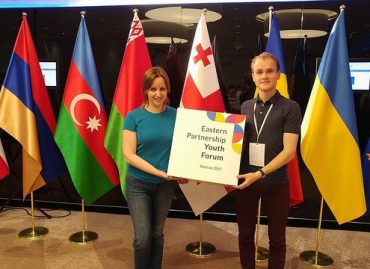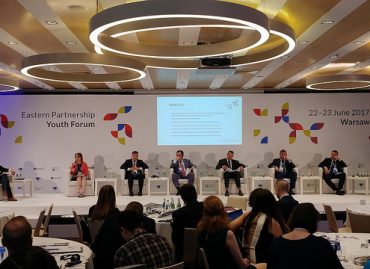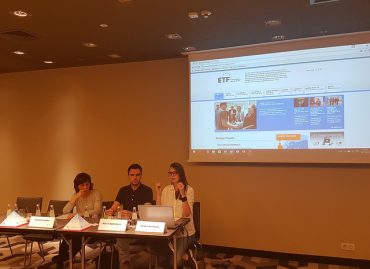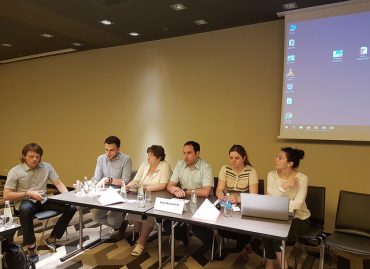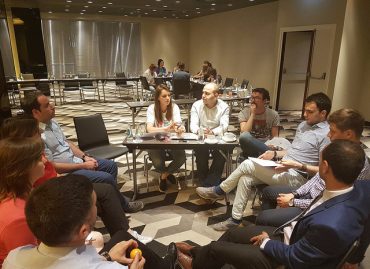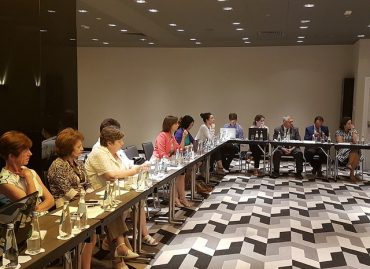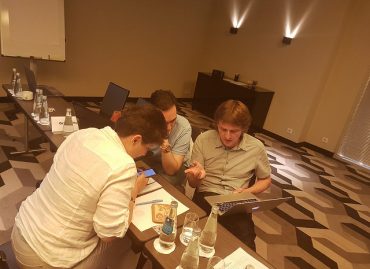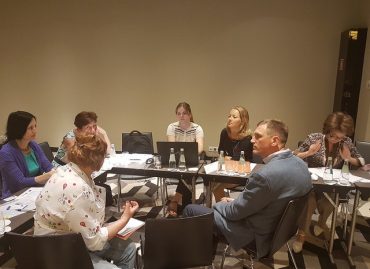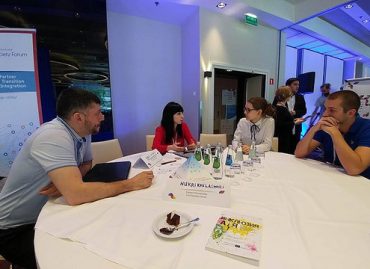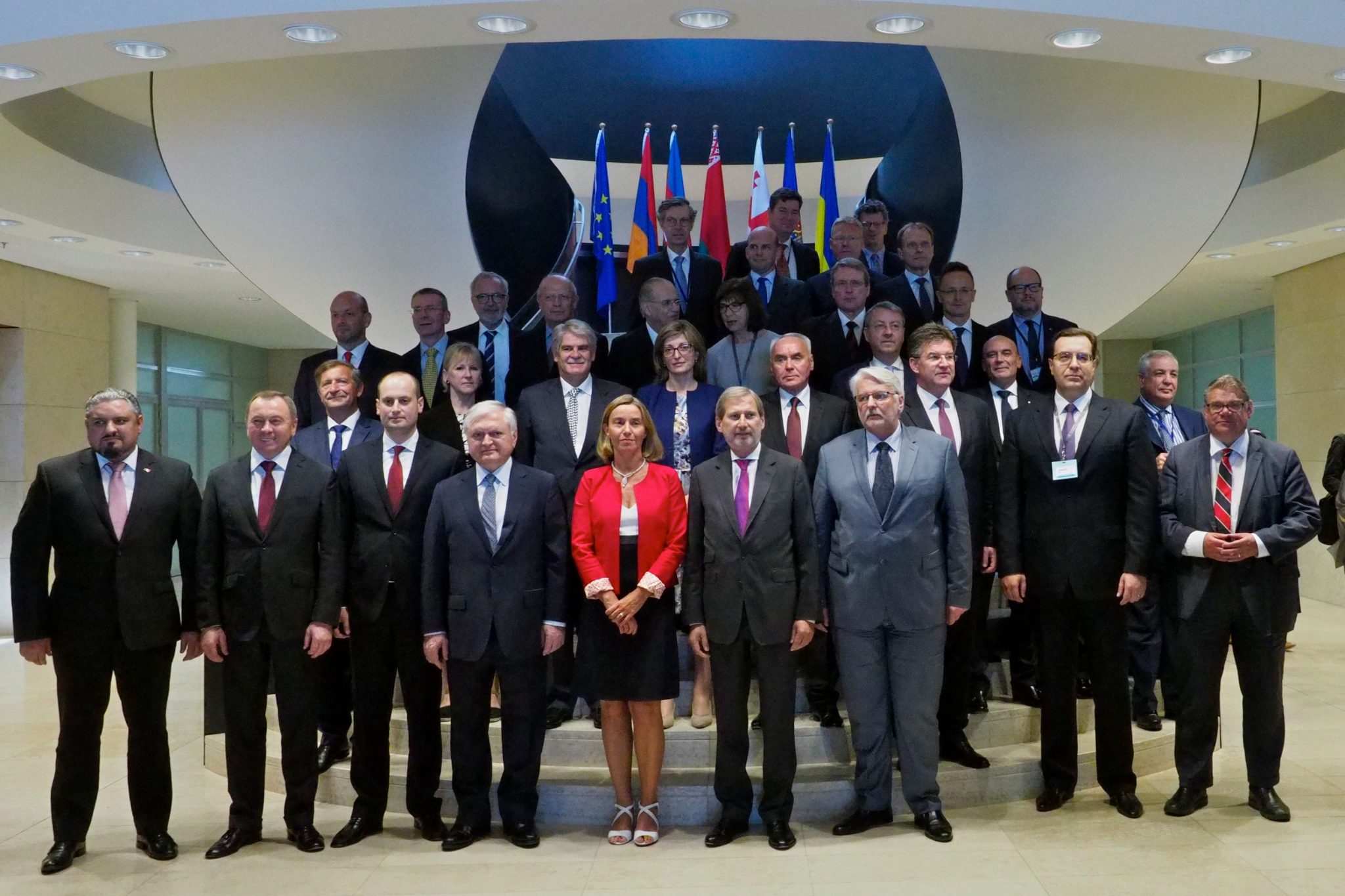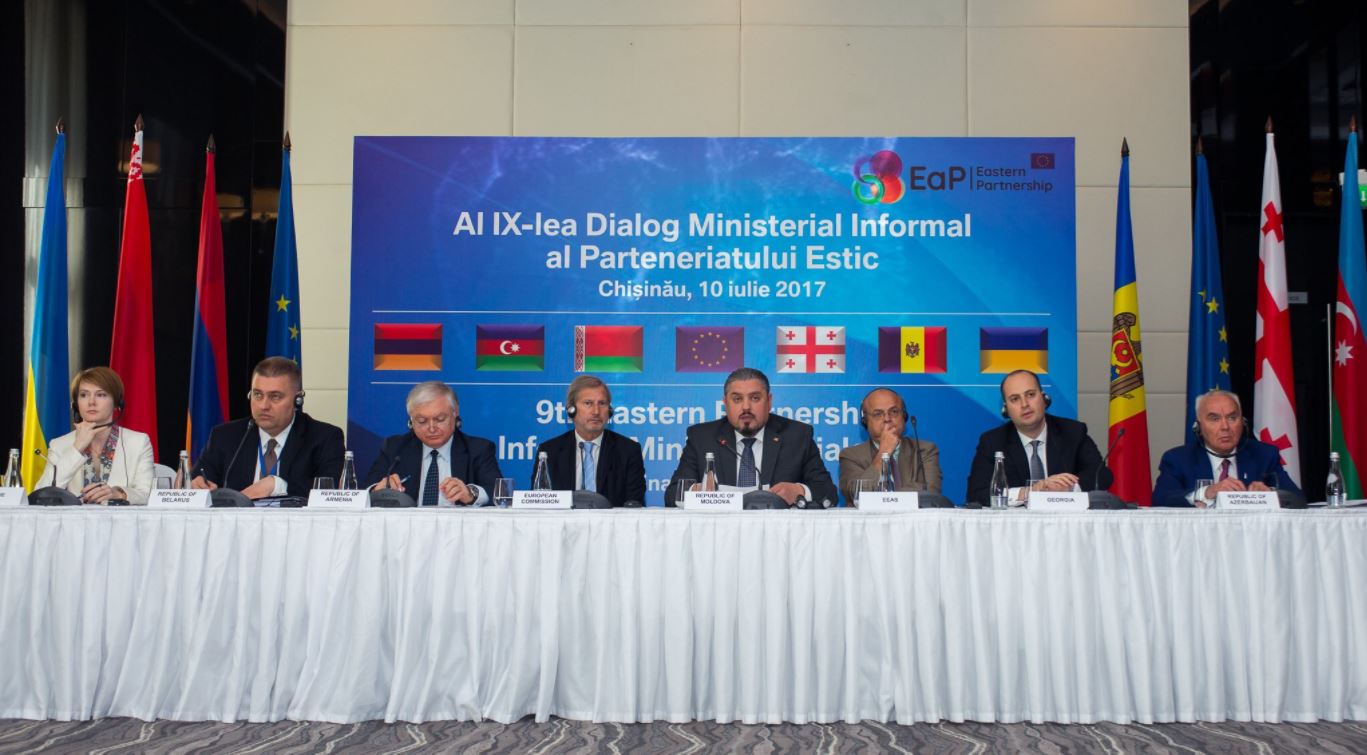The EaP CSF WG4 gathered around 30 members from the EaP countries and the EU who worked intensively over the period of two days, addressing the major challenges and policies for the EaP CSF and its members. Alexandra Kalatozishvili, EaP CSF WG4 Coordinator, opened the meeting by highlighting the priorities of the Working Group and the EaP CSF as a whole for 2017 and the 2018-2020 strategy.
The discussion of the EaP CSF policy brief elaborating on Joint Staff Working Document “Eastern Partnership – Focusing on key priorities and deliverables” led to the realisation that more work should be done on analysing the deliverables from the document relevant for the WG4 and determination of the actions the EaP CSF can take to help achieve those goals.
During the discussion on the EaP CSF internal reform it was highlighted that the communication within the EaP CSF should be improved, National Platforms in Armenia, Azerbaijan and Belarus should be strengthened and opportunities for networking and campaigning should be promoted. The necessity of engaging EU CSOs through mapping of potential partners and communicating to them a package with the membership benefits was discussed.
The discussion on the EaP CSF re-granting scheme focused on the continuity of the projects and their contribution to the overall strategy, while the members highlighted the need for the revision of the selection procedure, as well as for increased transparency in the projects implementation and better communication of the projects’ results.
Within the framework of the debate on the WG4 current operation and optimisation of its activities, the members expressed their interest in taking part in the Platform 4 work through engaging both WG Coordinators and sub-group coordinators. They see a need for the annual capacity building on advocacy, monitoring and functioning of the EaP Platforms and ENP for the Working Group. Youth migration was mentioned as one of the major priorities of the WG4 work. It was decided that the sub-groups should ensure the continuity of expertise by developing a limited number of priorities that would feed into the priorities of the WG4.
The WG4 members presented and discussed the following re-granting projects 2017:
- Everybody Counts: Rural Youth Empowerment in Eastern Partnership Countries (Lead: Armenian Progressive Youth, Armenia)
- Ageing and Intergenerational Solidarity – Advocating Age-Friendly Policies in Eastern Partnership Countries(Lead: Coalition Homecare, Georgia)
- Creative Europe Forum (Lead: Golden Apricot Fund for Cinema Development, Armenia)
The Working Group also worked on developing the priorities for Civil Society Declaration to the Eastern Partnership Summit in the field of WG4 work and civil society engagement as such. The members discussed proposals for the agenda of the EaP CSF Annual Assembly 2017 to be held in Tallinn on 25-27 October, including the topics for the WG4 Stakeholders’ Meeting and WG4 internal meeting during the Annual Assembly.
The Youth sub-group discussion focused on the key messages for the Eastern Partnership Youth Forum and the EaP CSF presentation, as well as follow-up steps in the communication and implementation of the Youth4Rights Conference 2016 recommendations, and the issues encountered during the first call of the reviewed EaP Youth Window. Education sub-group discussed the issues related to the student mobility and ECTS credits. The Culture sub-group focused on the culture as the uniting element in the region. The Contacts between seniors sub-group discussed the challenges facing seniors in the region. The Conflict Resolution sub-group developed a number of recommendations on a peacebuilding process in the region for the Civil Society Declaration.
On the second day, the members exchanged their views on the possible future cooperation with the AEGEE-Europe (European Students’ Forum) after its representative Armenak Minasyants delivered a presentation on the activities and priorities of this network, including the European Planning Meeting to be held in March 2018 in Yerevan. Discussion with Irena Fedorkowa, working on the Eastern Partnership Project at the Adam Mickiewicz Institute, focused on the cooperation possibilities for partners from the Eastern Neighbourhood countries. Kamila Partyka from DG Education and Culture (DG EAC) presented the proposal for the new structure of the multilateral EaP Platforms and Panels, as well as discussed with the WG4 members the first call of the reviewed EaP Youth Window and other possibilities to support civil society projects and capacity building.
After the WG4 Meeting ten members of the Working Group took part in the 3rd EaP Youth Forum 2017. The WG4 Coordinator and EaP CSF Steering Committee Member Alexandra Kalatozishvili shared her views during the opening panel session on how to enable young people to engage in a diverse, connected and inclusive Europe with Deputy Ministers of Youth and Sport from Azerbaijan, Georgia, Moldova and Ukraine. She highlighted the challenges the youth in the EaP region face, and civil society contribution to the inclusion of young people. WG4 members presented the EaP CSF work during the “big fish” networking meetings and discussed youth rights, higher education and civil society empowerment with the young people from the EaP and EU countries.



